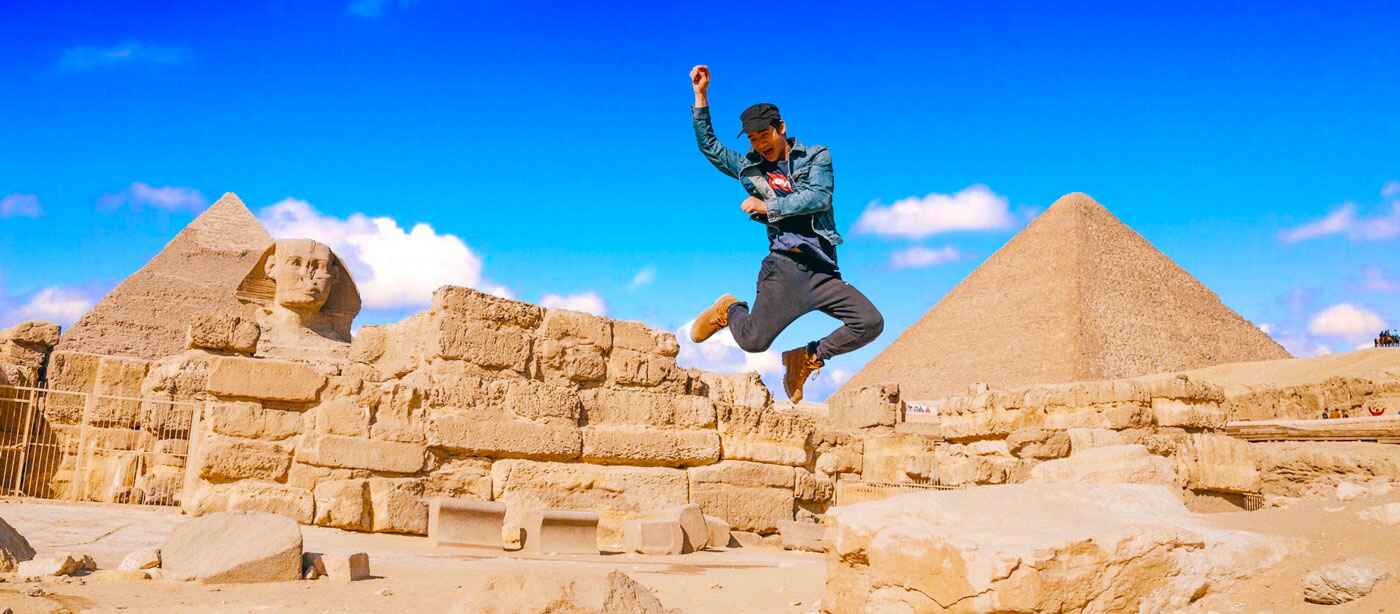Egypt, the land of ancient wonders and modern marvels, beckons travelers year-round with its rich history, vibrant culture, and breathtaking landscapes. In the previous article we discovered destinations to visit in egypt But when is the best time to visit Egypt to make the most of your journey? Let’s embark on a journey through the seasons and unveil the optimal time to explore this timeless destination.
Understanding Egypt’s Climate
Before delving into the specifics, it’s essential to grasp Egypt’s climate, which is predominantly arid. The country experiences two main seasons: summer and winter. Summers, extending from May to October, are scorching hot, with temperatures often soaring above 40°C (104°F). Winters, from November to April, offer milder temperatures, making it the favored season for travelers.
Navigating Egypt’s Seasons
- Winter (November – April): This season is marked by pleasant weather, making it the prime time for tourism. Temperatures range from 20°C to 25°C (68°F to 77°F) during the day, dropping slightly at night. The weather is perfect for exploring Egypt’s outdoor attractions, including the iconic pyramids, ancient temples, and the Nile River.
- Summer (May – October): While summer brings scorching heat, it also offers unique opportunities for adventure seekers. Travelers willing to brave the high temperatures can enjoy fewer crowds and potentially lower prices on accommodations and tours. However, it’s crucial to stay hydrated and seek shade during the hottest parts of the day.
Choosing the Ideal Time for Specific Activities
Depending on your interests and preferences, different times of the year may be better suited for specific activities in Egypt.
Sightseeing and Cultural Exploration
If your itinerary revolves around sightseeing and cultural immersion, the winter months are your best bet. The comfortable temperatures allow for unhurried exploration of Egypt’s renowned landmarks, such as the Sphinx of Giza, Luxor’s Karnak Temple Complex, and the Valley of the Kings.
Nile River Cruises
Embarking on a Nile River cruise is a quintessential Egyptian experience. The winter months provide an ideal backdrop for this journey, with mild temperatures and clear skies enhancing the scenic beauty along the riverbanks.
Desert Adventures
For adventurers seeking to explore Egypt’s vast deserts, such as the Sahara and the Western Desert, the cooler winter months offer more favorable conditions. Whether it’s a camel trek across the dunes or a jeep safari, you’ll find the experience more enjoyable without the scorching heat of summer.
Special Events and Festivals
Egypt hosts a myriad of cultural events and festivals throughout the year, offering visitors unique insights into its traditions and heritage.
Ramadan
Ramadan, the Islamic holy month of fasting, is observed by Muslims worldwide, including in Egypt. While it may not be the ideal time for non-Muslim tourists due to altered schedules and dining restrictions during daylight hours, experiencing Ramadan in Egypt provides a profound cultural experience.
Abu Simbel Sun Festival
One of Egypt’s most spectacular events is the Abu Simbel Sun Festival, which occurs twice a year on February 22nd and October 22nd. Travelers flock to the Abu Simbel temples to witness the sun illuminating the inner sanctum and illuminating the statues of Ramses II and the gods Amun, Ra-Horakhty, and Ptah.
Conclusion
In conclusion, the best time to visit Egypt depends on your preferences, interests, and tolerance for heat. While the winter months offer comfortable weather and optimal conditions for sightseeing, the summer months provide unique opportunities for budget-conscious travelers and adventure seekers. Whether you’re exploring ancient ruins, cruising the Nile, or immersing yourself in local festivities, Egypt welcomes you with open arms year-round, promising an unforgettable journey through time and culture.



